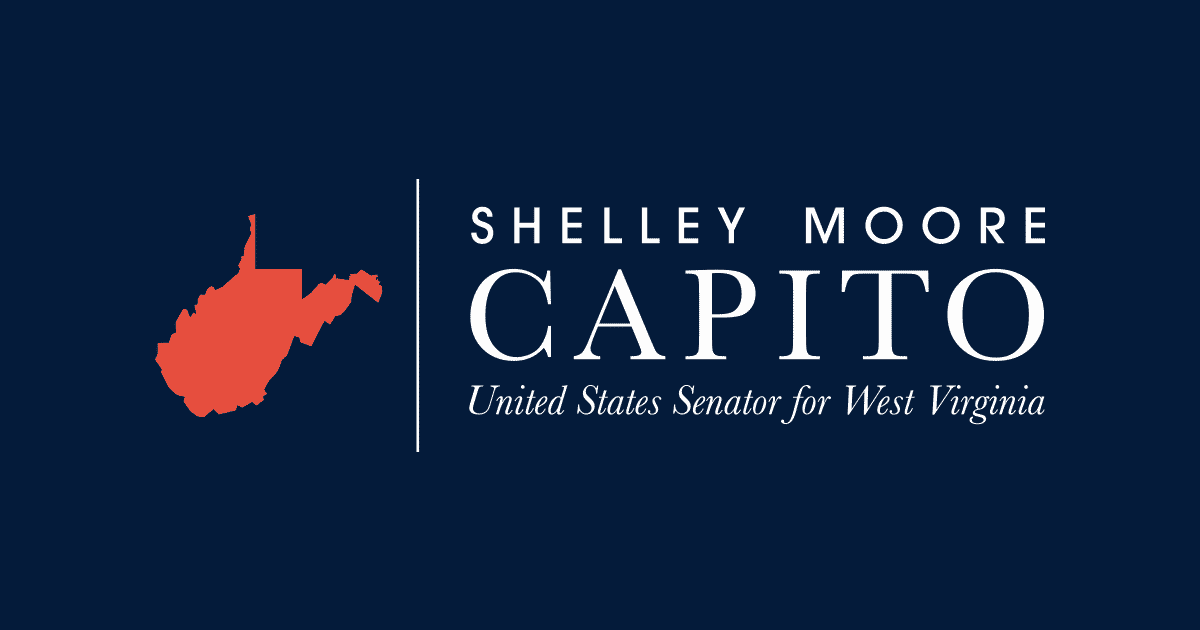Source: United States Senator for West Virginia Shelley Moore Capito
WASHINGTON, D.C. – U.S. Senator Shelley Moore Capito (R-W.Va.) tonight voted to pass the James M. Inhofe National Defense Authorization Act for Fiscal Year 2023 (NDAA), bipartisan legislation to support our troops and enhance national security. Several provisions Senator Capito supported were included in this legislation that will benefit West Virginia and our servicemen and women.
Senator Capito issued the below statement after the Senate passed the NDAA by a vote of 83-11.
“After too long a delay, I am pleased that Congress has finally passed legislation that demonstrates our continued support of our military, especially during these challenging times. We have to ensure our military is best equipped and prepared to face whatever challenge it may have to face, and that our personnel and equipment are able to meet those pressing needs in defense of our nation and our allies. This legislation accomplishes that goal.
“This bill is also named after a dear friend and colleague, and former Chairman of the Senate Armed Services Committee, Senator Jim Inhofe of Oklahoma, who is retiring at the end of this Congress. It has been an honor to serve with him and naming this bill after him is a fitting tribute,” Senator Capito said.
THE NDAA INCLUDES THE FOLLOWING PROVISIONS SENATOR CAPITO LED OR SUPPORTED:
- Senator Capito drafted language that promotes the efforts at Green Bank Observatory to develop the Next Generation Very Large Array (ngVLA) and a new high-power radar transmitter for the Green Bank Telescope. This language directs the Secretary of Defense to assess the department’s current ground-based radar infrastructure and outline how the U.S. Department of Defense (DoD) could benefit from utilizing Green Bank.
- For the second year in a row, Senator Capito secured language that recognizes the West Virginia National Guard’s Army Interagency Training and Education Center (AITEC) and encourages DoD to assess the expansion of AITEC’s mission capabilities to include combating cyber threats to critical infrastructure.
- The bill prohibits the Air Force from reducing the number of C-130s assigned to the National Guard. C-130s are important aircraft for the National Guard, but particularly in West Virginia.
ADDITIONAL NDAA HIGHLIGHTS:
- Authorizes $847 billion, reversing proposed cuts by the Biden administration, for national defense programs, military construction projects, and nuclear weapons programs under the U.S. Department of Energy.
- Removes a restrictive mandate for COVID-19 vaccines for troops, which has hindered recruitment and retention.
- Authorizes a 4.6 percent raise for service members, the largest pay raise in 20 years, which could not come at a better time as families are struggling with the rising costs of daily life due to inflation.
- Seeks to help offset the devastating impact of inflation through increased housing allowances, reducing food costs at military commissaries, offsets in procurement of ships, aircraft, and weapons systems, and increases to cover record fuel prices.
- Revives and extends temporary authority for targeted recruitment incentives to help improve military recruitment and retention and directs DoD to analyze its recruitment efforts, obstacles faced by recruiters, and ways to use technology and social media to highlight the opportunities and benefits of military service.
- Expresses the sense of Congress that the U.S. must continue to assist Ukraine in its fight against Russia’s unprovoked invasion, and that oversight and transparency for such assistance is essential to ensure effective and sustained support.
- Authorizes the funding necessary to ensure that our nation’s military is well-equipped and prepared to face evolving threats from rogue actors like China, Russia, Iran, and North Korea.
- Prohibits funds from being used to transfer terrorists held at Guantanamo Bay to the United States.
- Authorizes a $20 million increase in Defense Established Program to Stimulate Competitive Research (DEPSCoR) funding. DEPSCoR has been a valuable program that has allowed universities like West Virginia University (WVU) to conduct research that is beneficial for DoD.
- Requires the U.S. military to implement plans to eliminate the use of Russian energy at U.S. bases in Europe.
- Requires a review on military suicides—the second-leading cause of death among military personnel—to help prevent future service member suicides.
- Includes provisions to enhance Taiwan’s ability to defend itself from Chinese aggression, including the establishment, for the first time, of a specific defense modernization program for Taiwan. It also authorizes Presidential Drawdown Authority for Taiwan, making Taiwan eligible to receive speedy deliveries of military equipment from U.S. stocks in the event of a contingency.
- Requires contractors who sell equipment containing rare earth elements and critical minerals to the Pentagon provide data on the sources of the rare earth elements.
The NDAA also included the bipartisan Water Resources Development Act of 2022 (WRDA), legislation Senator Capito, in her role as ranking member of the Senate Environment and Public Works (EPW) Committee, co-authored that authorizes key projects and studies to tackle water resources challenges across the country. Click here for more details on how this legislation will benefit West Virginia.
# # #
